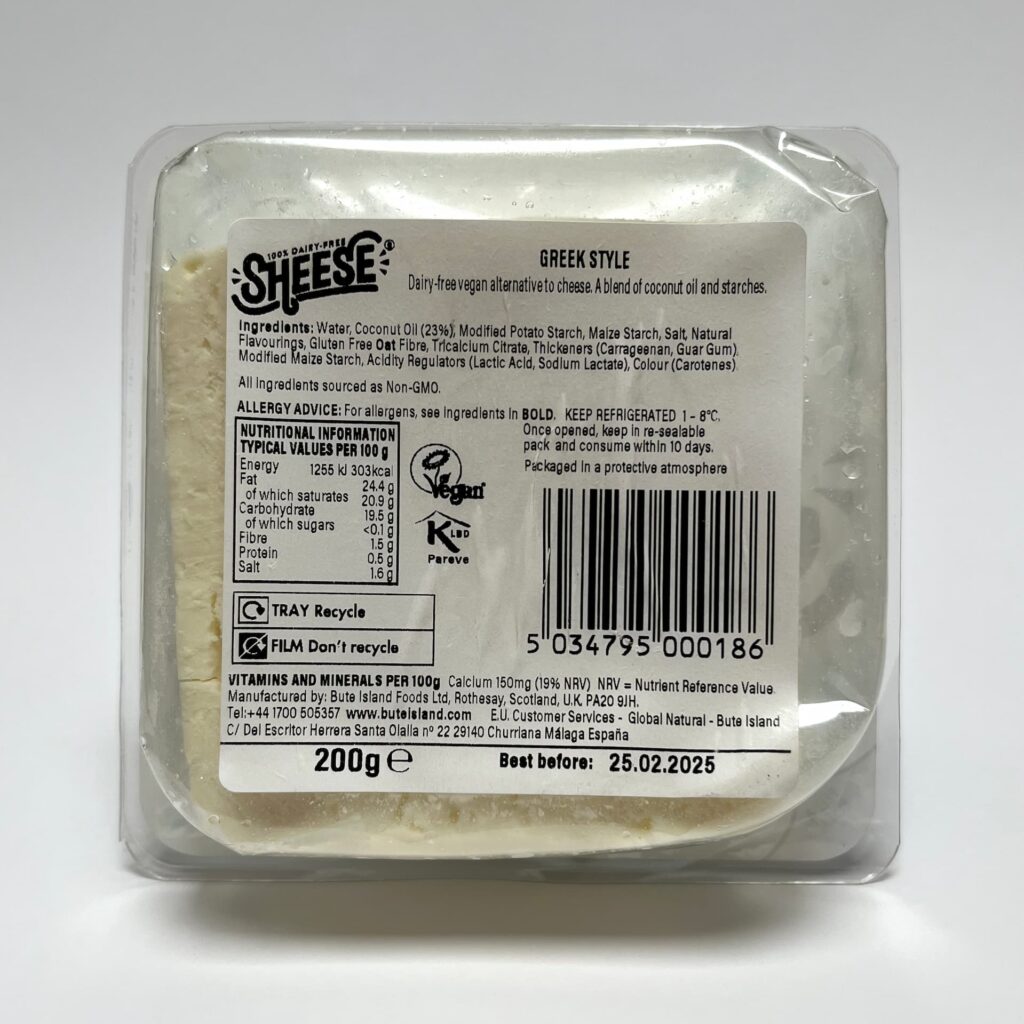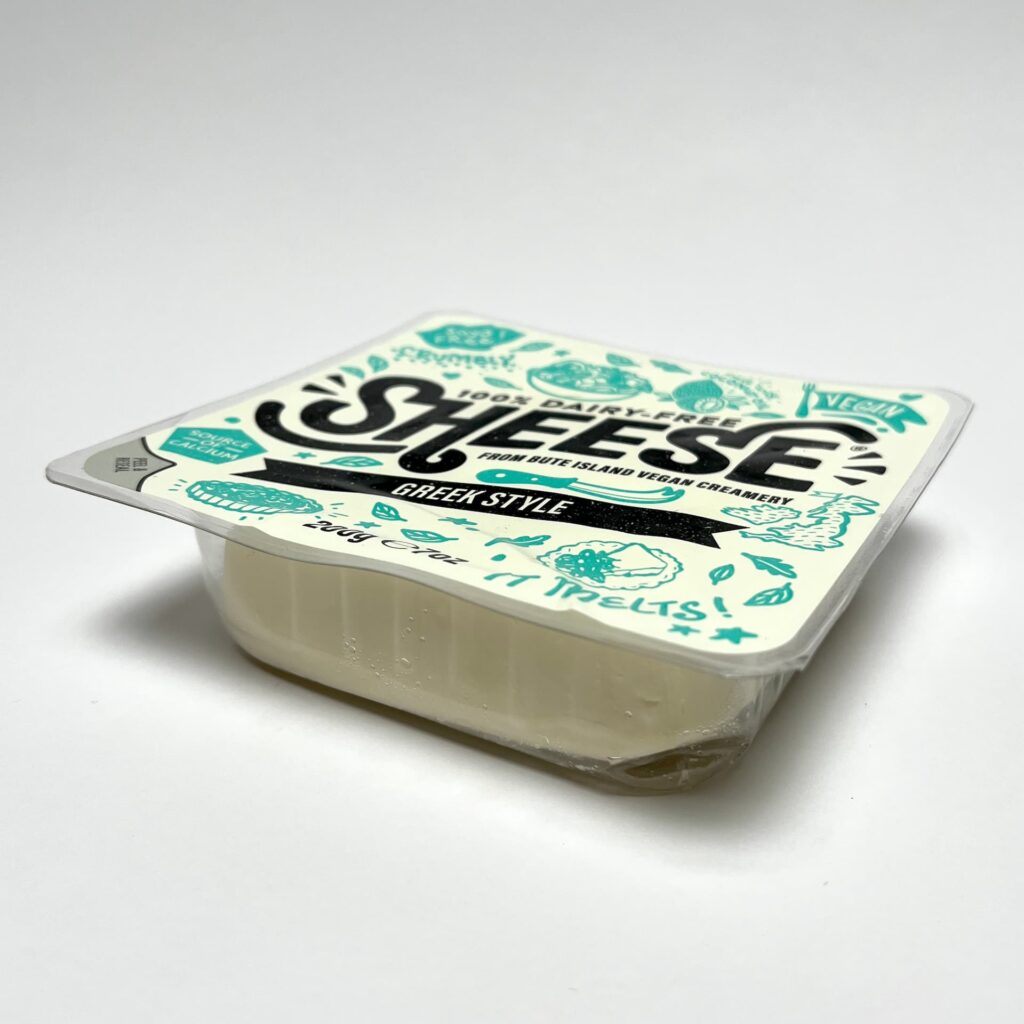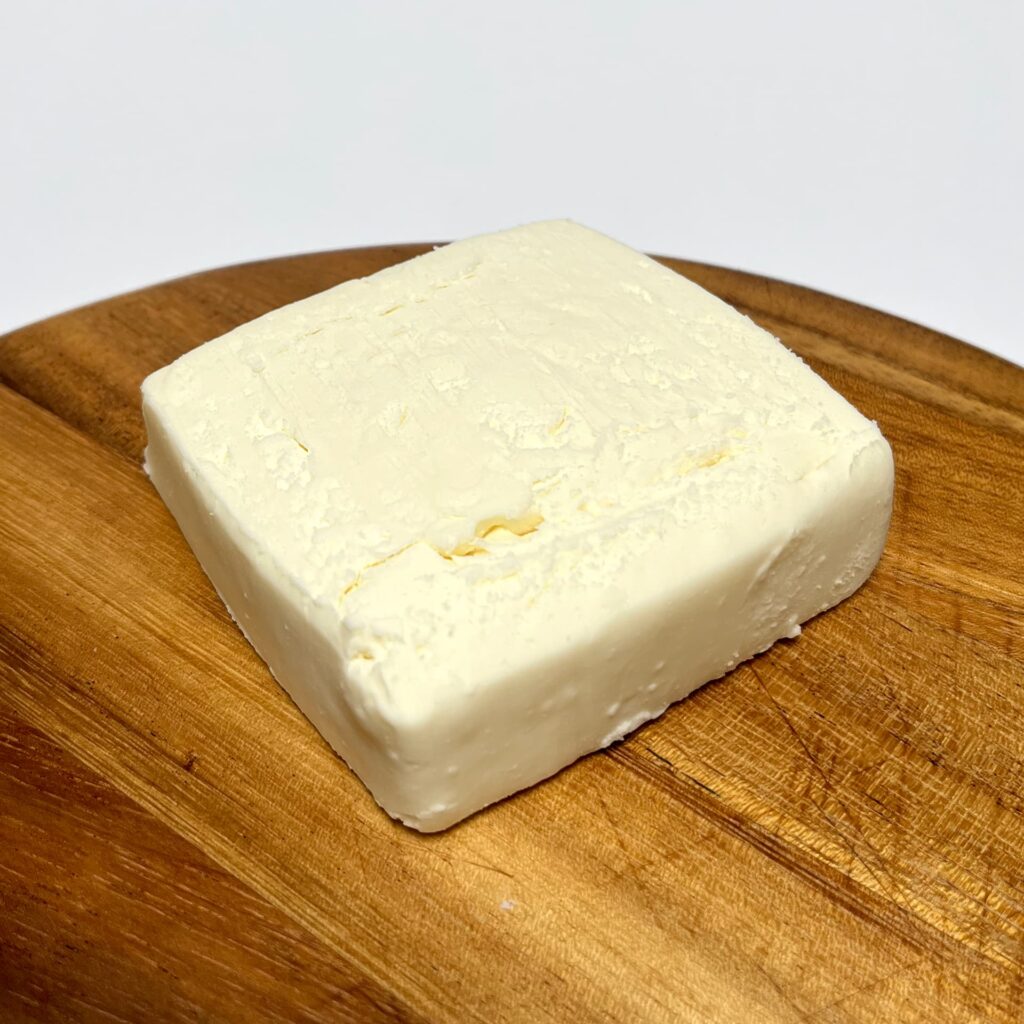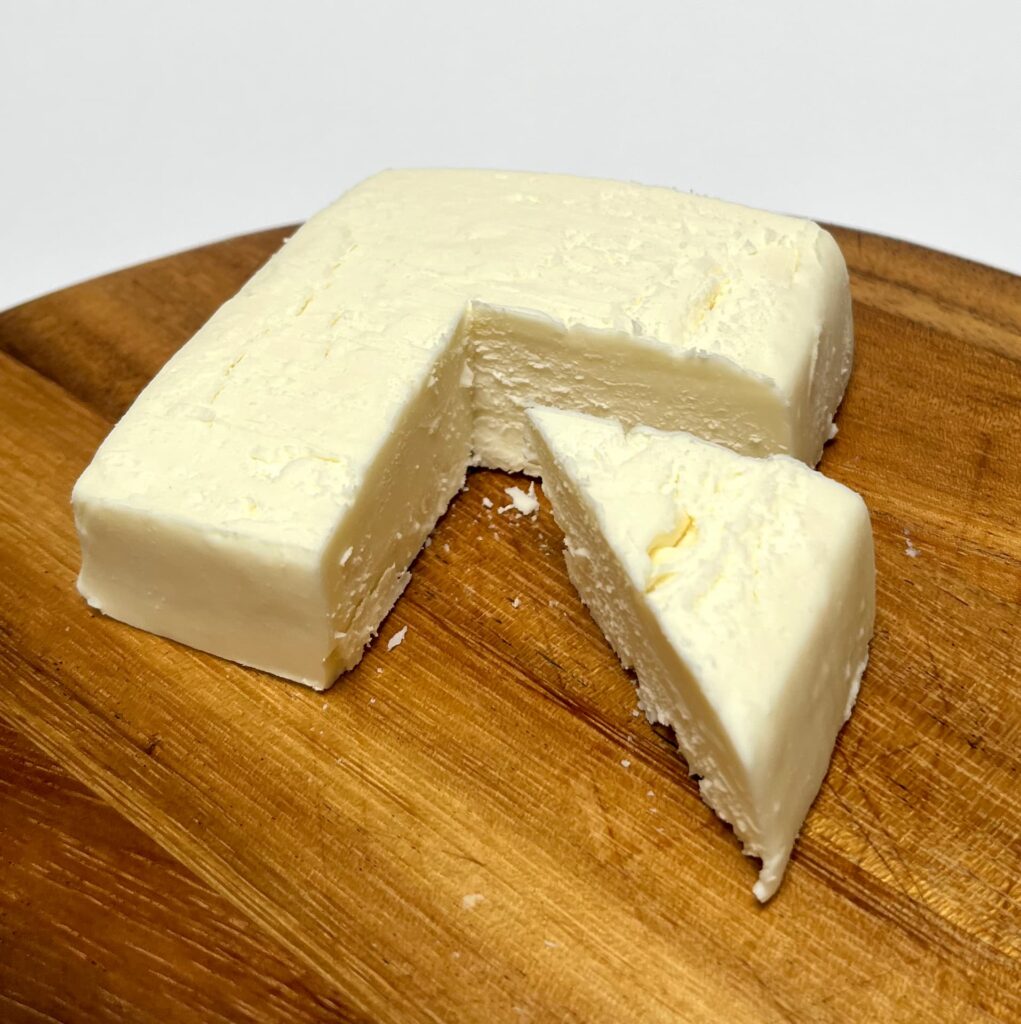



Dairy feta cheese comes typically packaged as a rectangular block in brine. While this vegan alternative to feta is rectangular, it is packaged dry in protective atmosphere on a plastic tray, so it looks a bit different to us when unpacking it. Also, the slice is a bit thicker than we’re used to in supermarket feta servings. The colour is quite similar to sheep and goat milk feta we compared it against. Additionally, we thought its exterior appearance resembles a bit more a hard butter than cheese.
When cutting it though, we notice it is indeed crumbly, as highlighted on the packaging. Also, the taste is mildly tangy, relatively quite clear compared to other feta-style vegan cheeses we reviewed so far. Both crumbliness and tanginess are properties we would expect from a feta-style cheese. At the same time, it is clearly not a tangy as a sheep and goat milk feta cheese.
This is not a ‘clean label’ product with only few ingredients. As typical for the coconut oil and starch based vegan cheeses, the taste is derived from added undisclosed flavourings, with other additives for texture and colour, and there is no fermentation. The advantage of the coconut oil and starch base is that it melts well.
Bute Island Foods provides several recipes on their website for cooking with their vegan cheeses. We must say, particularly the vegan quiche with this Greek style cheese looks mouthwatering.1
Conclusion
In conclusion, we would not add it to a cheese platter for consumption on its own (maybe also not the typical way to enjoy feta in any case). At the same time, we would recommend this Sheese Greek Style for use in a salad or other recipe, for its crumbliness and relatively tangy taste. We think it is one of the best vegan feta-style alternatives we have reviewed so far. It may just surprise someone eating a greek salad that it is a non-dairy cheese.


